Award winners 2024
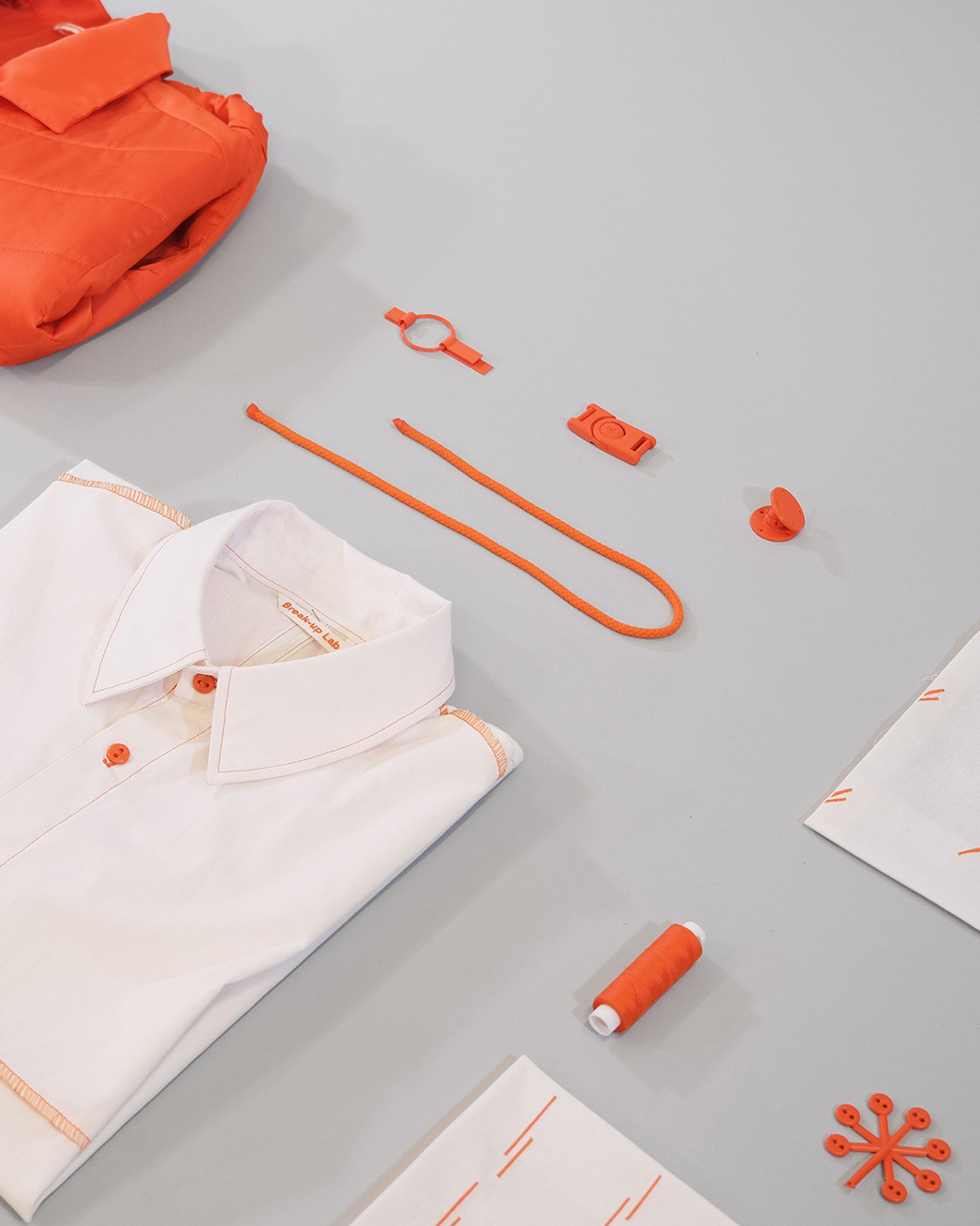
Break-up Lab
Sophia Reißenweber | Burg Giebichenstein University of Art and Design HalleMore about this project»Reducing the diversity of materials at the design stage, developing innovative recycling processes to recover fibres from blended fabrics, promoting fibre-to-fibre recycling, collecting and pre-sorting used textiles using a digital code, and much more. Taken together, these steps represent a transparent, regional textile value chain. What more could you ask for in a circular economy?«
Siddharth Prakash
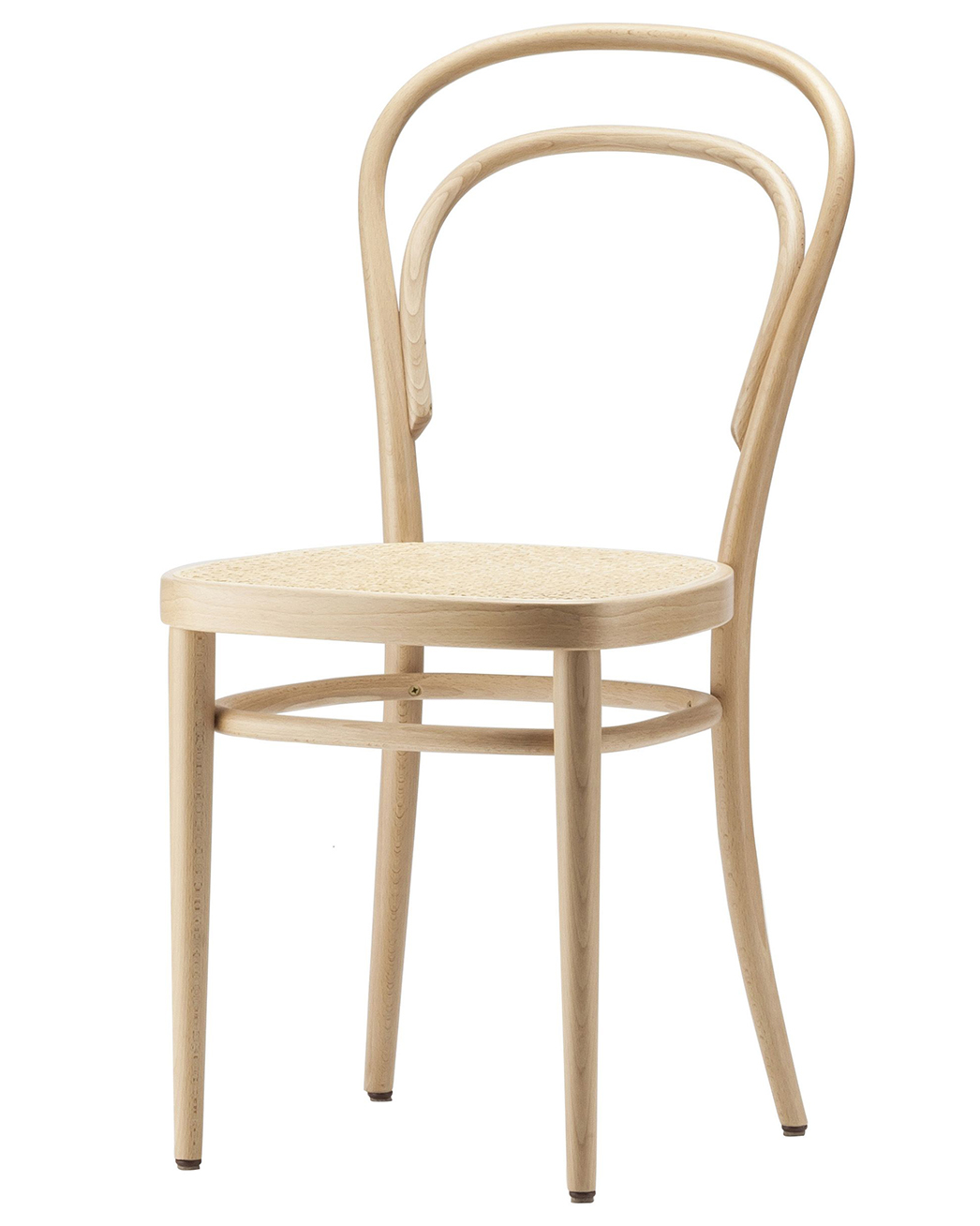
Coffee House Chair
Thonet GmbHMore about this project»With this chair, Thonet has made history. A chair that is archetypical of design classics that has found its place worldwide – a chair, as an iconic example of long-lasting products that will still be purchased in 100 years. Its design language, its history, and its sustainable production are being honored with this special commendation. A chair that makes returning developments of new products, which in turn generate CO2 footprints, unnecessary. A timelessly sustainable chair.«
Werner Aisslinger
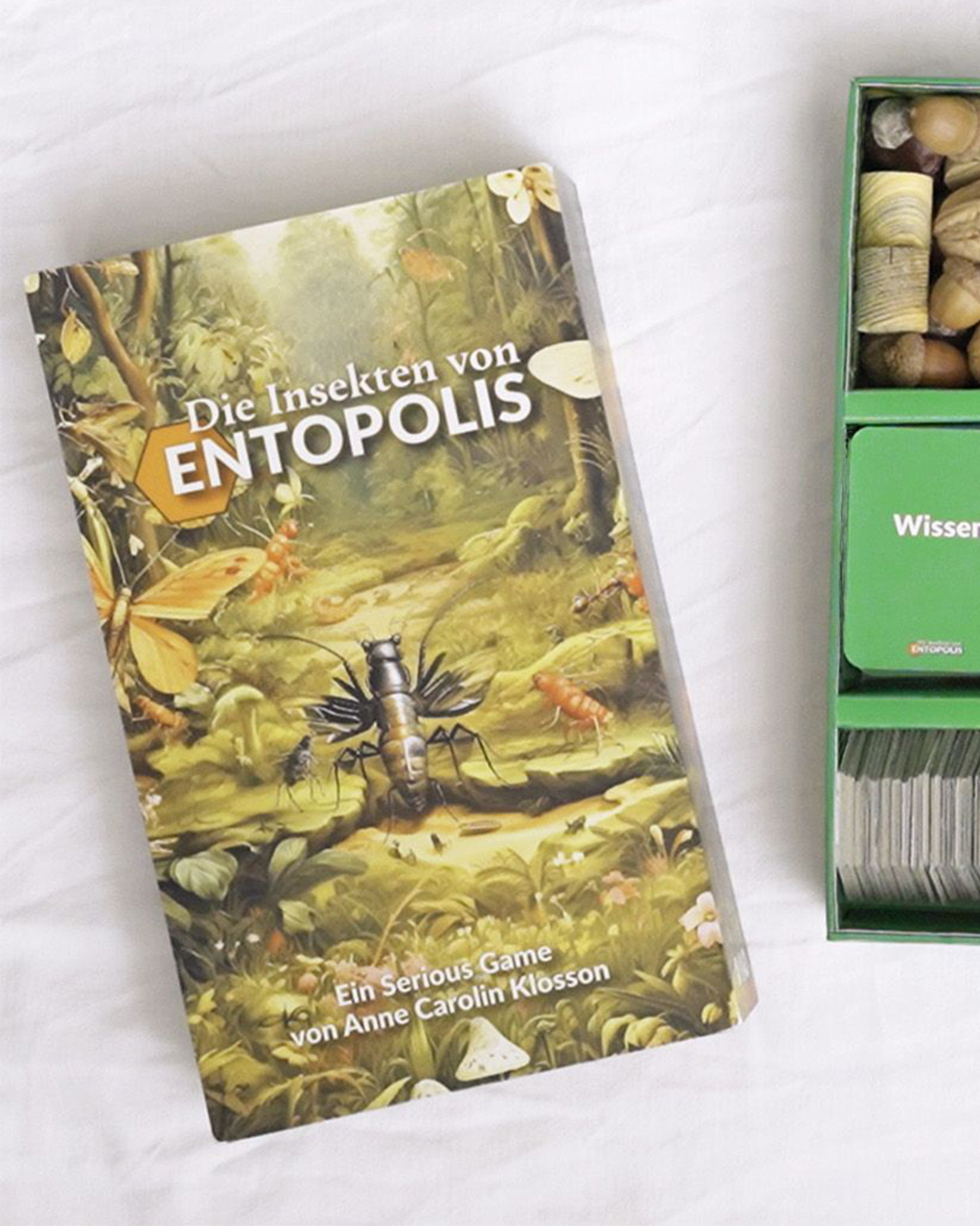
Entopolis – a Serious Game
Anne Carolin Klosson | ecosign / Akademie für GestaltungMore about this project»The concept that underpins the environmental educational game ‘Entopolis’ is ultimately convincing thanks to its well thought-out approach to the highly relevant topic of insect biodiversity. It is characterized by both ecological and creative innovation, and targets a broad audience. The jury was particularly impressed by the playful yet coherent and accessible way in which knowledge is conveyed.«
Paula Raché
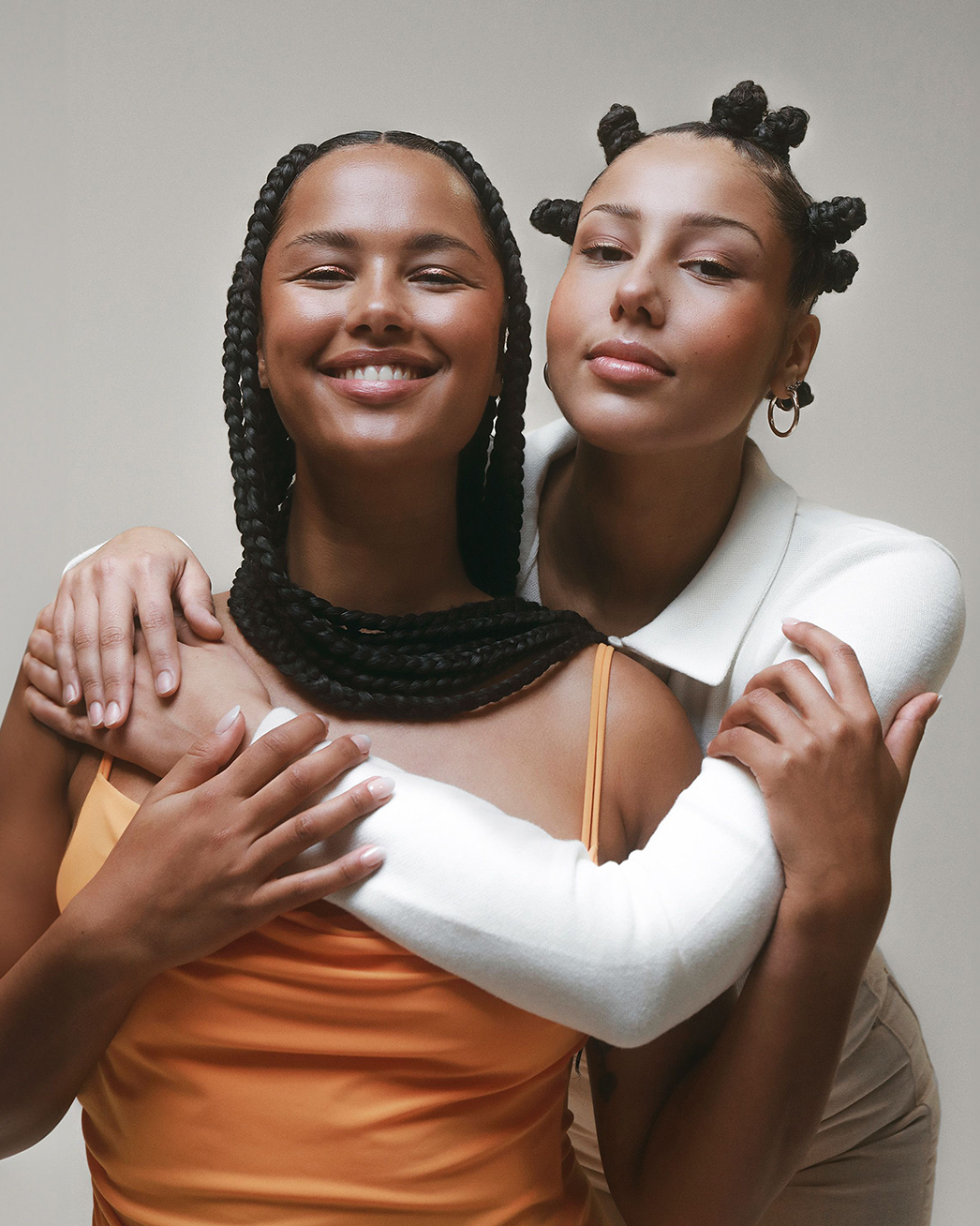
Kynd Hair – plant-based synthetic hair
Kynd Hair GmbHMore about this project»This project addresses an issue that is largely invisible in mainstream German society. Plant-based synthetic hair is a plastic-free and reusable alternative to current solutions that also addresses the health considerations of black people. What’s more, it is in keeping with the idea of a holistic circular economy.«
Siddharth Prakash
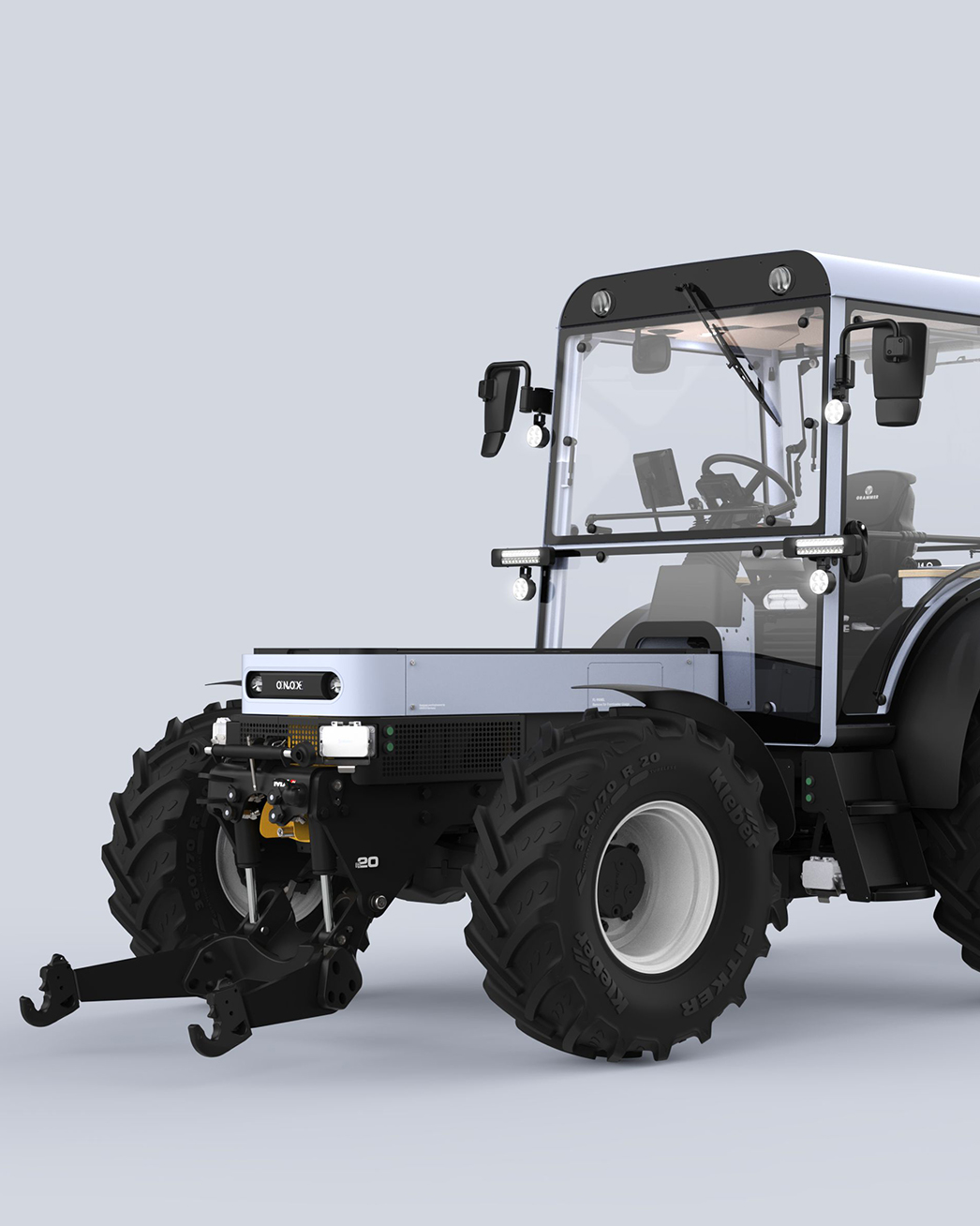
ONOX
raumideen GmbH & Co. KGMore about this project»Power charging is a hot topic, but ‘ONOX’ takes a different approach. To charge quickly you need a high connected load, which is rarely available in rural areas. Today, 40% of agricultural enterprises have their own PV systems, which is where the ‘ONOX’ electric tractor comes into play. The battery blocks charge slowly, helping to protect the battery, the power grid and farmers’ wallets. Once charged, they are quick and easy to exchange.«
Michael Volkmer
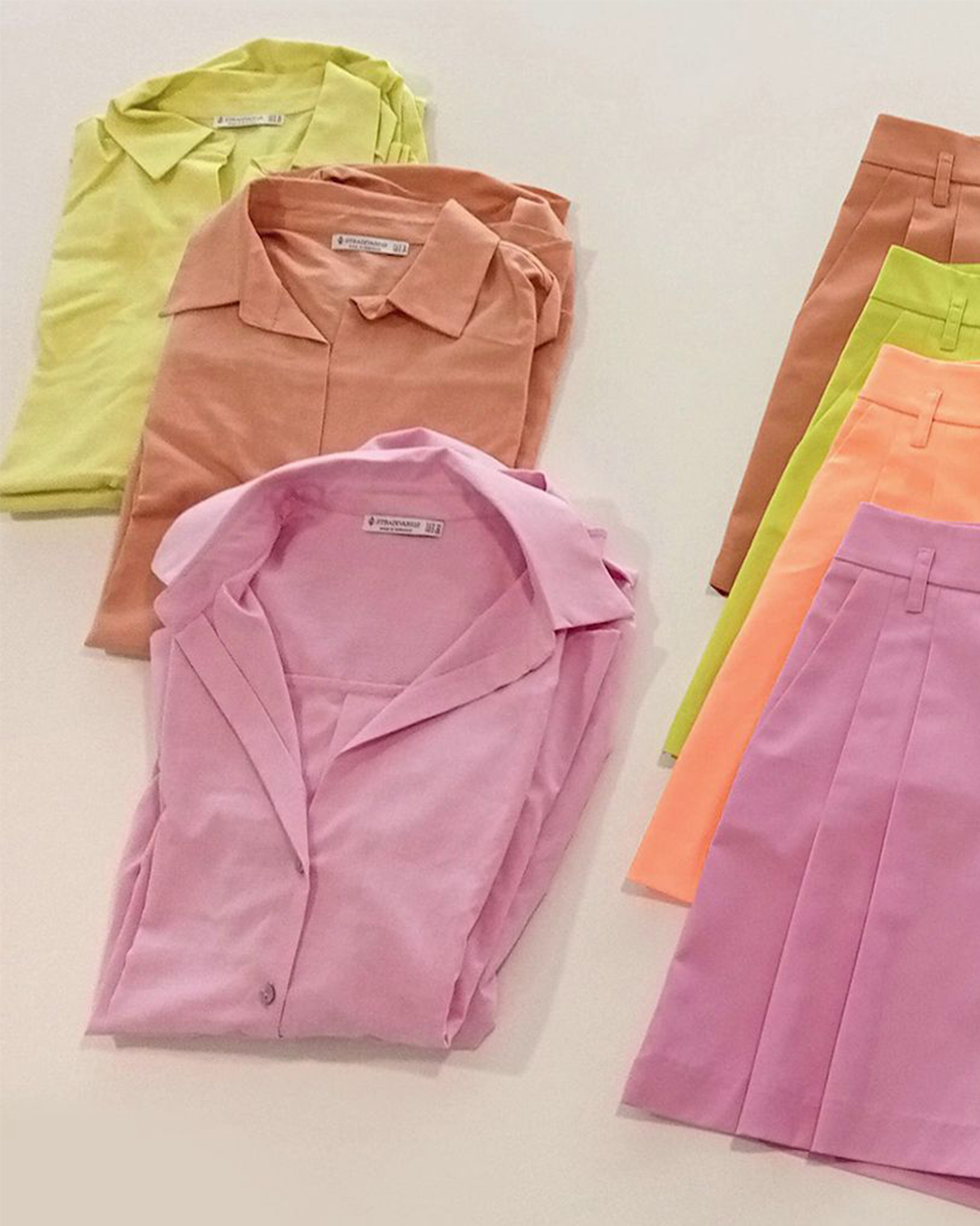
PIGMENTURA
CHT Germany GmbHMore about this project»With its innovative ‘PIGMENTURA’ dyeing process, CHT Germany GmbH has developed a new process design that makes a relevant contribution to reducing the environmental impact of textile dyeing. The savings in energy and water consumption are remarkable and the process meets demanding standards for the use of chemicals.«
Dr. Bettina Rechenberg
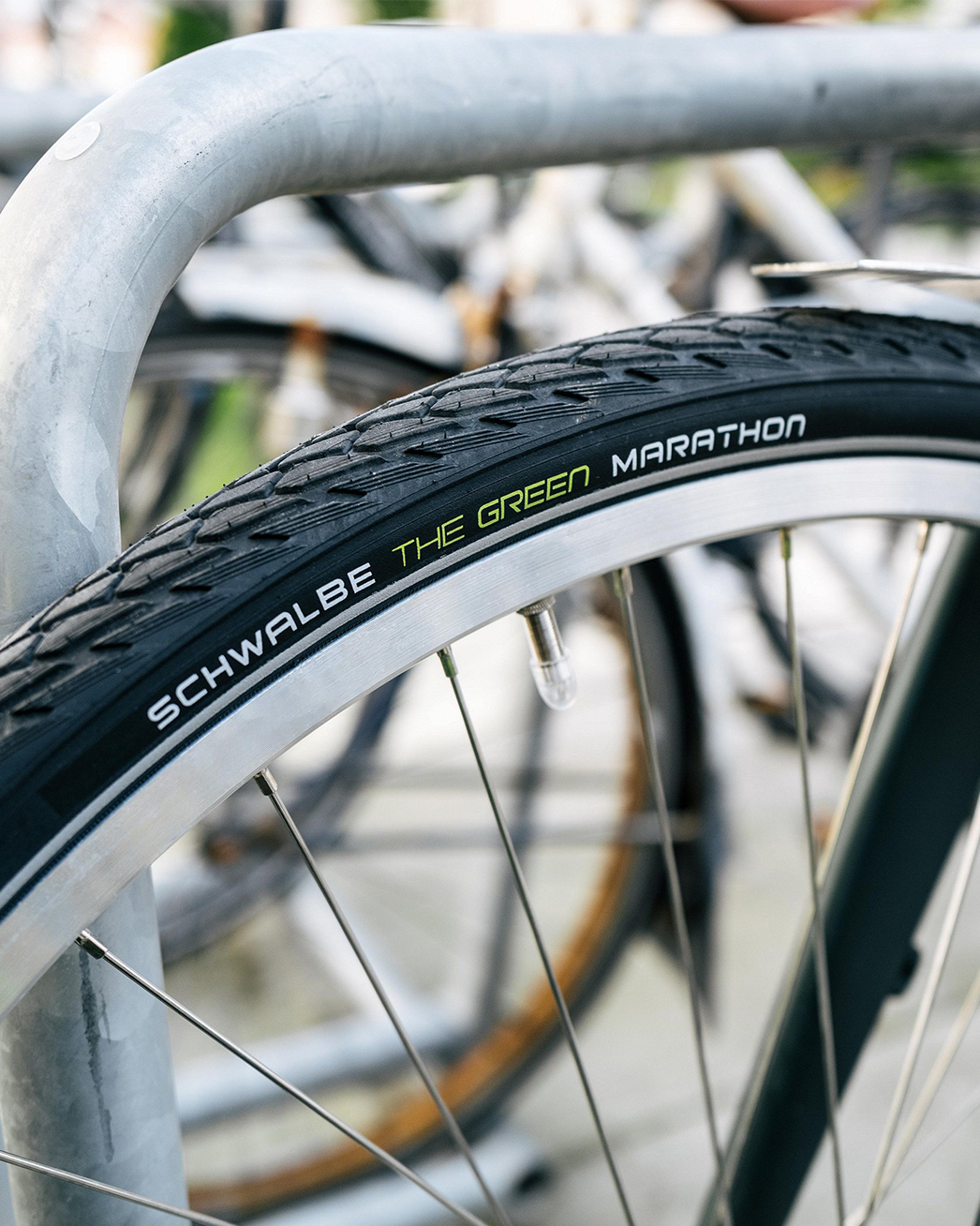
Schwalbe Green Marathon
Schwalbe – Ralf Bohle GmbHMore about this project»The wheel may not have been reinvented by Schwalbe, but the bicycle tire has. The 'Green Marathon' model is the first bicycle tire with a closed material loop: it is made from used tires from Schwalbe's recycling system, recycled industrial carbon black, and fair-trade natural rubber. The steel used for the bead core contains 90% recycled material. Schwalbe achieves a 41% reduction in CO2 equivalents compared to the previous model. Very important for a product bearing the name 'Marathon': there is no compromise in terms of mileage, durability, or performance. From the jury’s perspective, this is an outstanding innovation that provides all cyclists with a genuine ecological alternative and contributes to sustainable consumer behavior.«
Dr. Bettina Hoffmann MdB
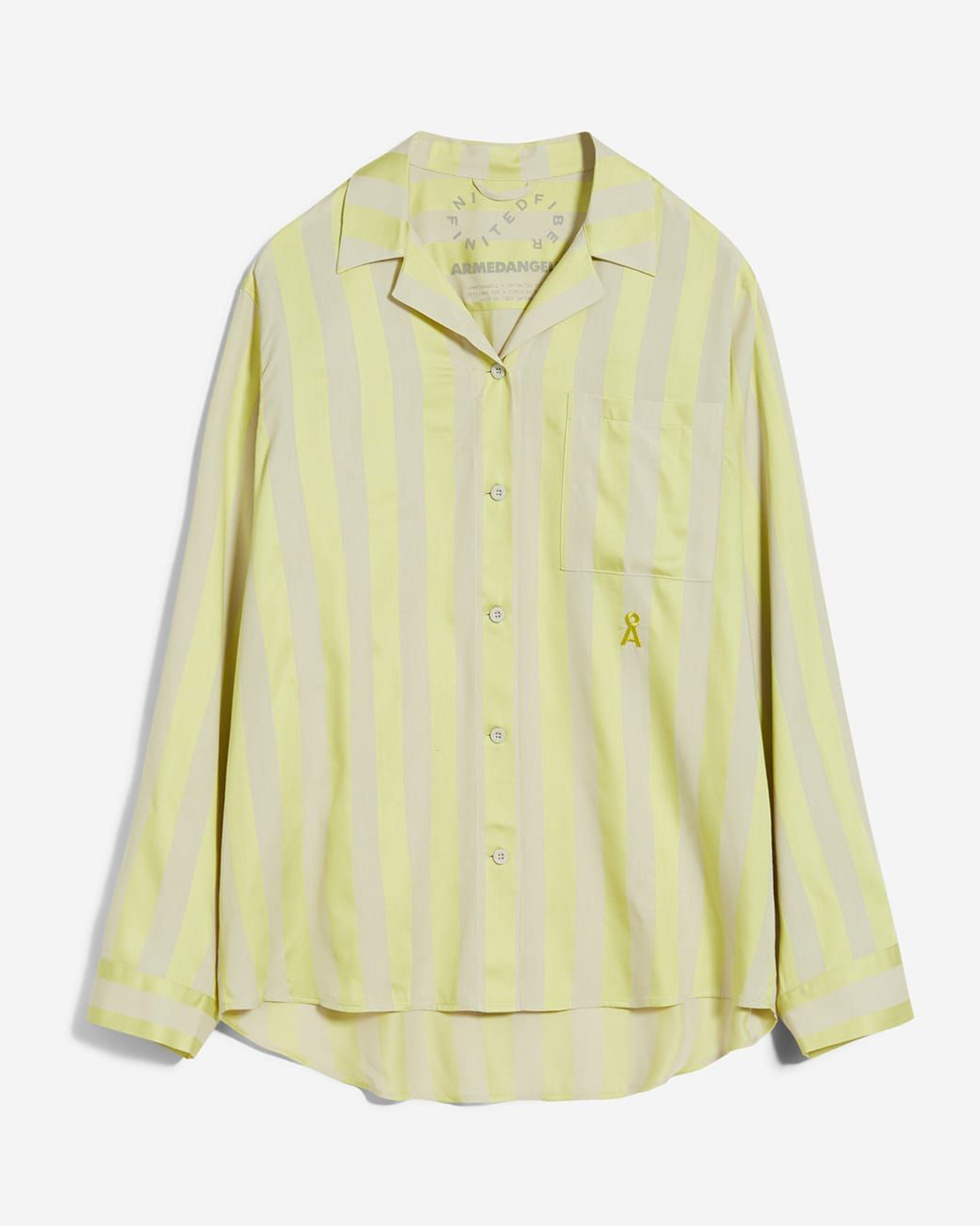
Sleep 'til Infinna™
ARMEDANGELS – Social Fashion Company GmbHMore about this project»Sleep 'til Infinna™ is an effective demonstration of holistic circularity in action. With a high use of 99% post-consumer recycled textiles, a consistent mono-material approach and a focus on longevity, this is an inspiring example of future-proof circular design.«
Ina Budde
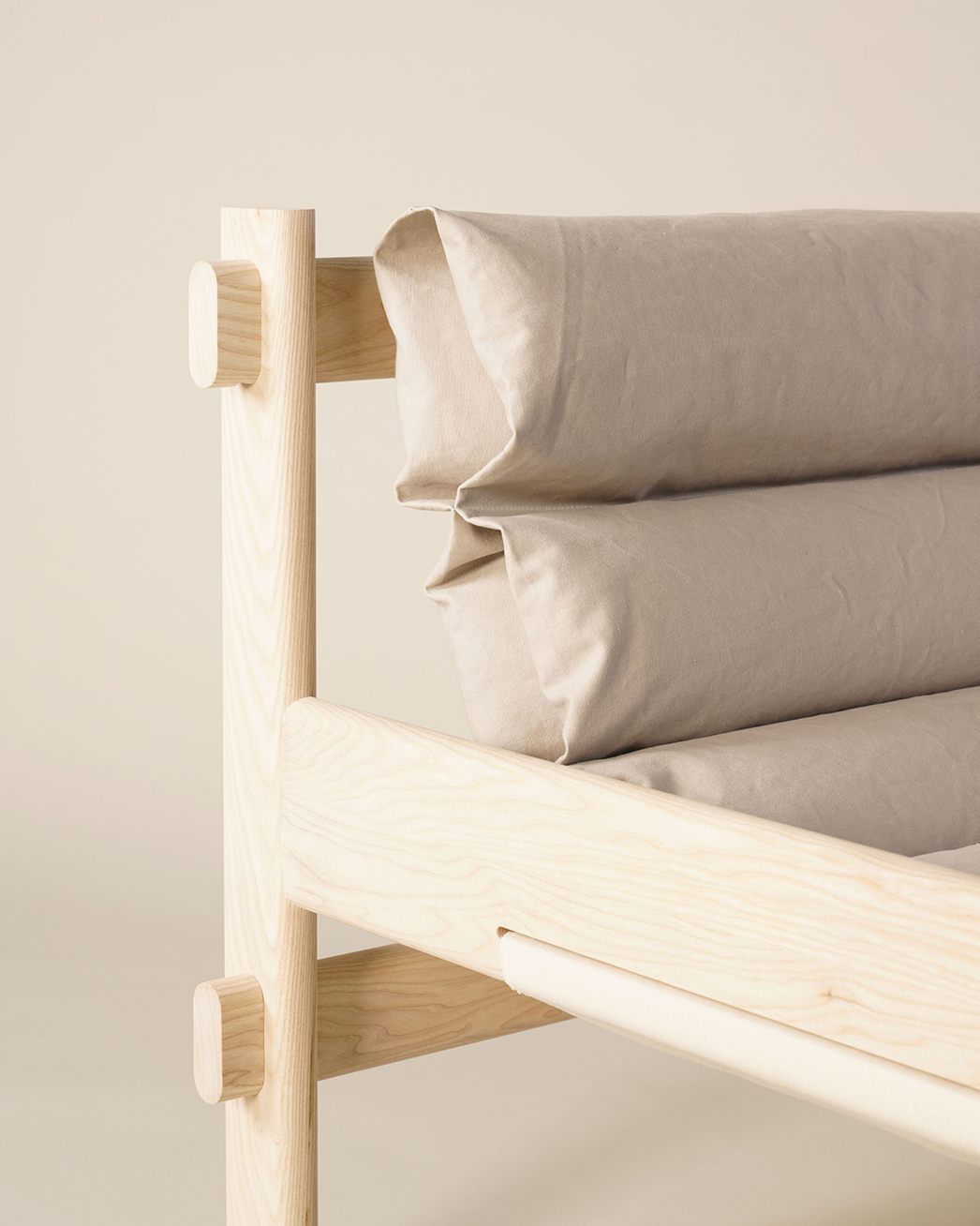
Soft Spot
Franziska Baumgartner | Akademie der Bildenden Künste MünchenMore about this project»Soft Spot addresses one of the greatest industrial challenges facing the global upholstery industry, namely that of finding an environmentally friendly alternative to polyurethane-based foams. This student project is an outstanding example of a future path in which upholstered furniture made from natural materials is designed from the outset to be recyclable – with no compromises in terms of design, aesthetics, ergonomics or seating comfort!«
Werner Aisslinger
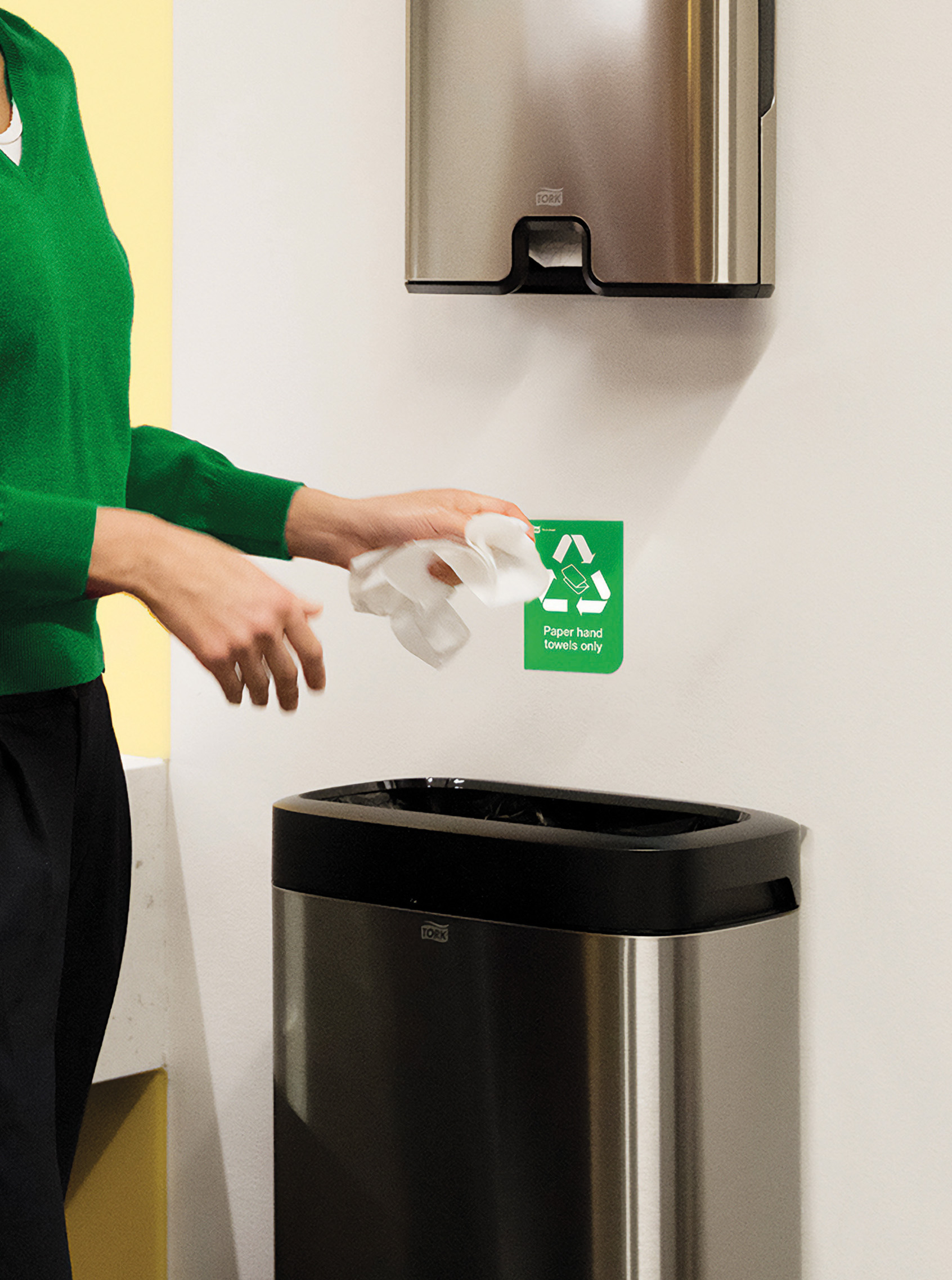
Tork PaperCircle®
Essity Professional Hygiene Germany GmbHMore about this project»Quick, hygienic and versatile – paper towels have many useful applications. However, they have to be wet-strengthened with chemical additives, meaning that it’s not possible to recycle them along with normal paper. This smart solution, which makes use of a separate cycle, is a worthwhile service with high savings potential. A clean affair!«
Prof. Matthias Held
Nominated 2024
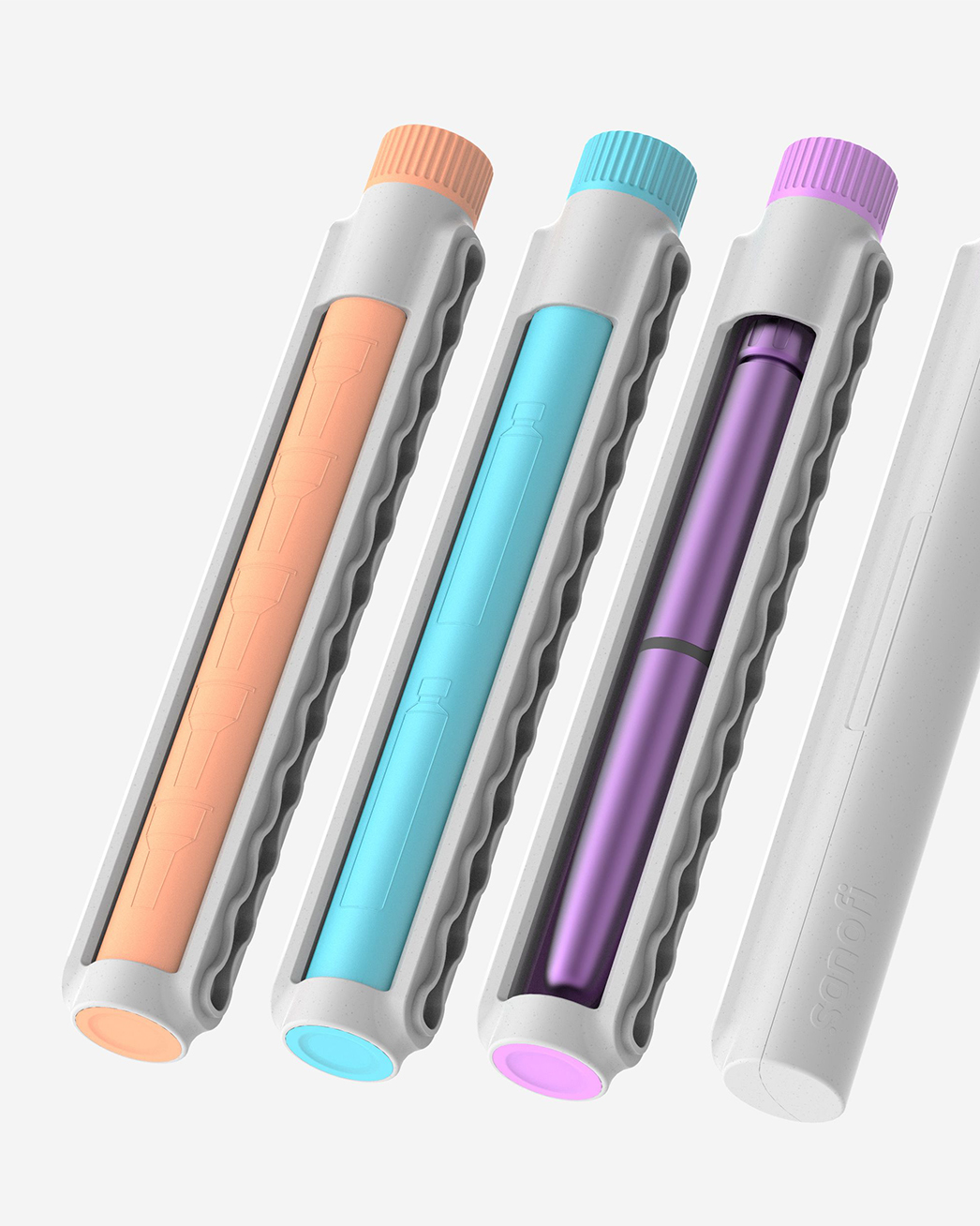
CareGo Case for diabetics
Sanofi-aventis Deutschland GmbH“CareGo” is a modular hard case system for diabetics for the storage and transportation of reusable insulin pens, insulin cartridges and injection needles. The push-fit system enables a straightforward combination of various components as required. Screw-top openings ensure quick access to contents and offer a practical storage space for safe handling. All “CareGo”-modules are constructed entirely from the plastic of recycled disposable pens, thereby contributing to the circular economy in healthcare.
More about this project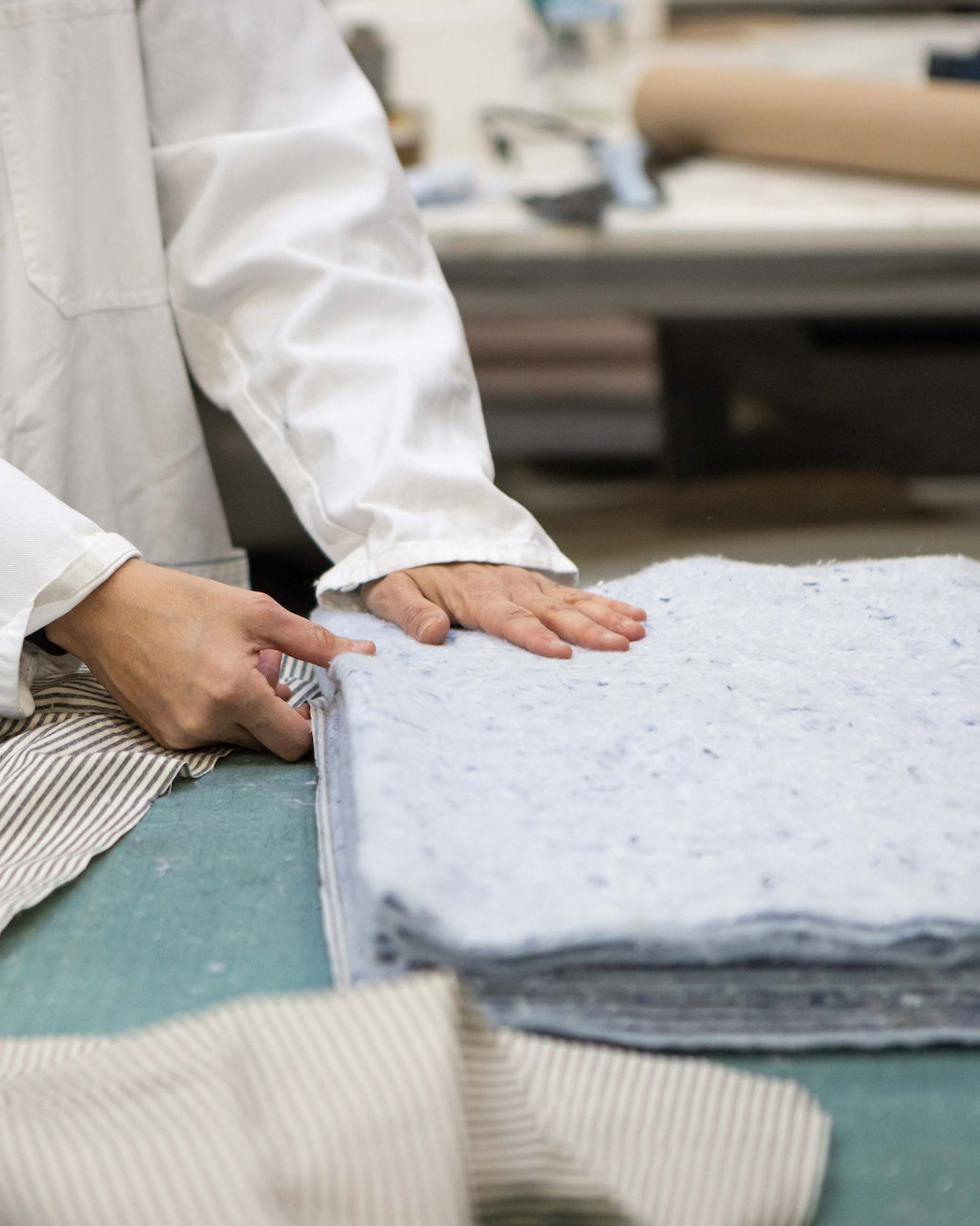
Enzymatic textile recycling
Re-Fresh GlobalAt present, less than one percent of global clothing waste is recycled, and a large portion of what remains ends up in incineration plants. “Re-Fresh Global“ uses a biotechnological hydrolysis process to convert almost all types of used textiles into new raw materials, without the use of harmful chemicals. The end products are nanocellulose, bioethanol and a synthetic nonwoven fabric, which can be used in a range of industrial sectors. The project now aims to establish microfactories in those locations where textile waste is generated.
More about this project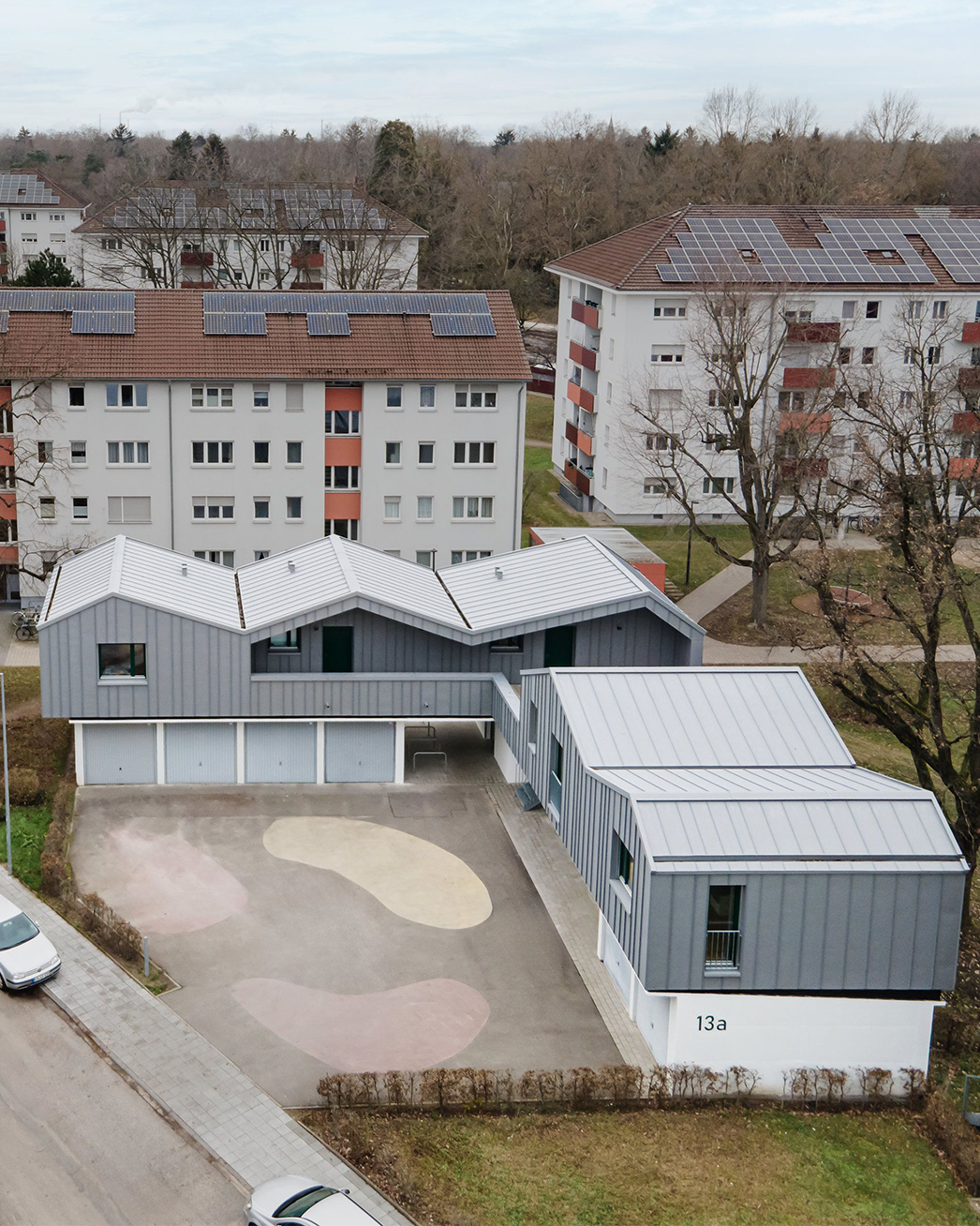
Garage additions
Falk Schneemann ArchitekturAs part of urban densification measures on a post-war estate in Karlsruhe, additional housing space was created by adding storey to three existing garage complexes. No new ground surfaces were sealed in the course of construction and the finished timber structure is recyclable and relocatable. Throughout, the project pursued the practice of urban mining – the reutilisation of existing demolition materials. The prototype venture uses alternative and abundantly available space resources and is now looking forward to implementation in other locations.
More about this project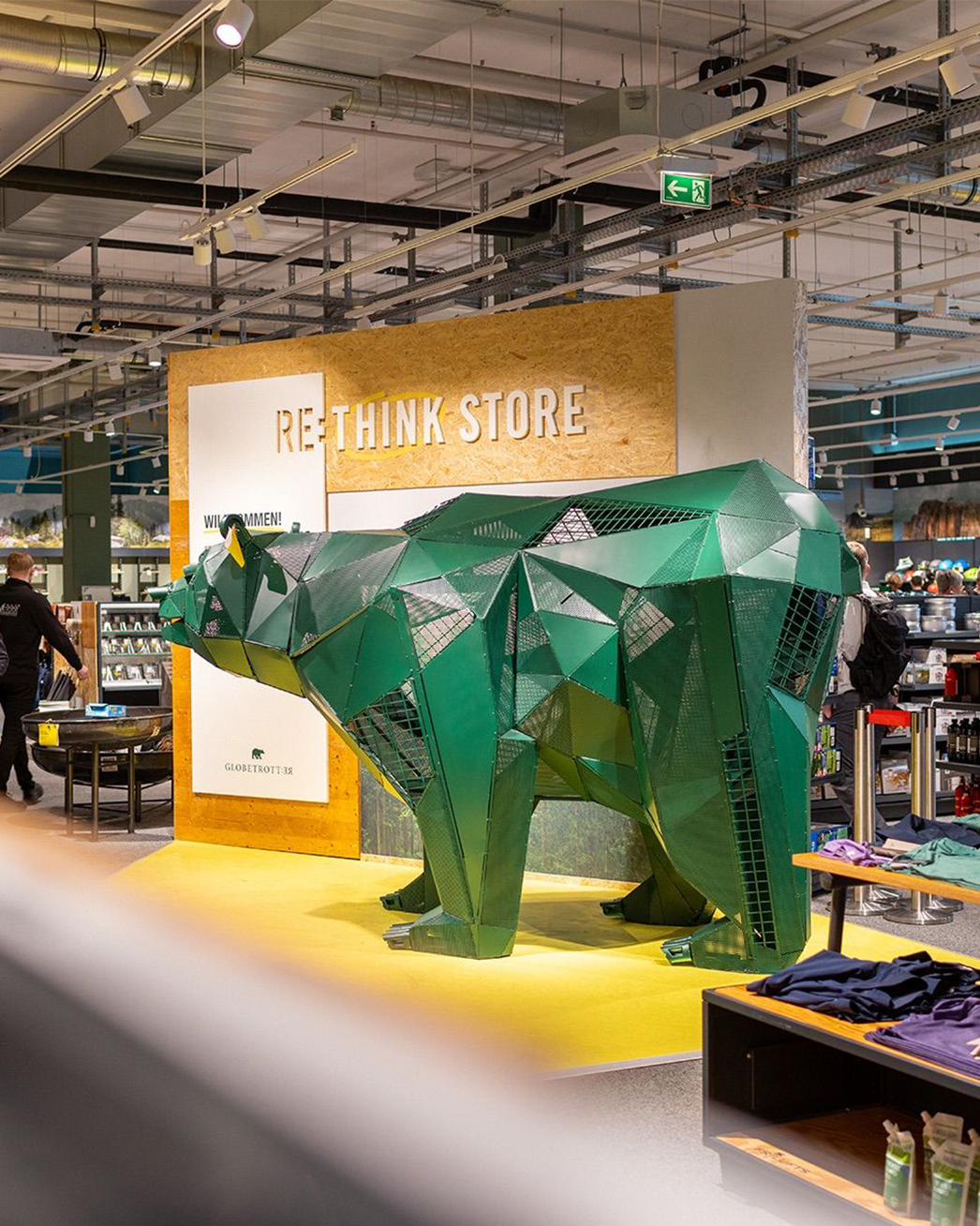
Globetrotter RE:THINK Store
Globetrotter Ausrüstung GmbHWhen the old tenants, technical supplies retailer Conrad Electronic, moved out, Globetrotter took over not only the premises but also the majority of the old inventory. In this novel project, the inherited inventory was reused or transformed into something new in a space that also made use of furniture from existing Globetrotter stores. Only 6% of the materials used in the “RE:THINK Store” were purchased new and only then for reasons of technical necessity. In contrast, 94% of materials were obtained from recycled old stocks. The pioneering project was realised in Bonn.
More about this project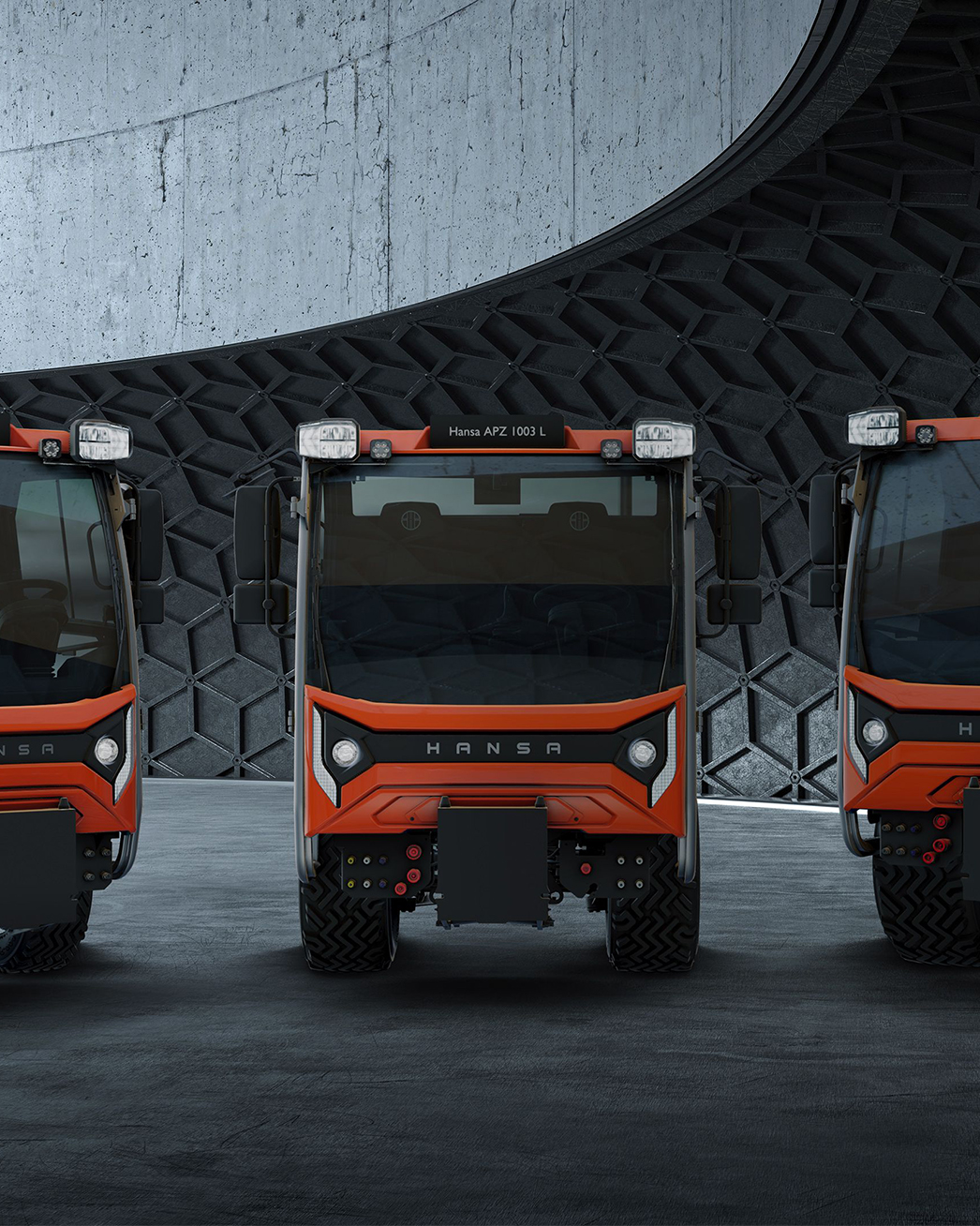
HANSA APZ 1003 series
HANSA – Maschinenbau Vertriebs- und Fertigungs GmbHThe distinguishing feature of the “HANSA APZ 1003” series of municipal equipment carriers is its modular design, which allows the vehicle to be offered in a variety of widths, lengths and heights. The possibility of needs-oriented customisation eliminates any requirement to purchase and maintain a larger fleet. New technologies can be straightforwardly retrofitted, which extends the life of the vehicles and permits easy repairs and remanufacturing. A specific component of the business model is resale, which also helps ensure a long life for the product.
More about this project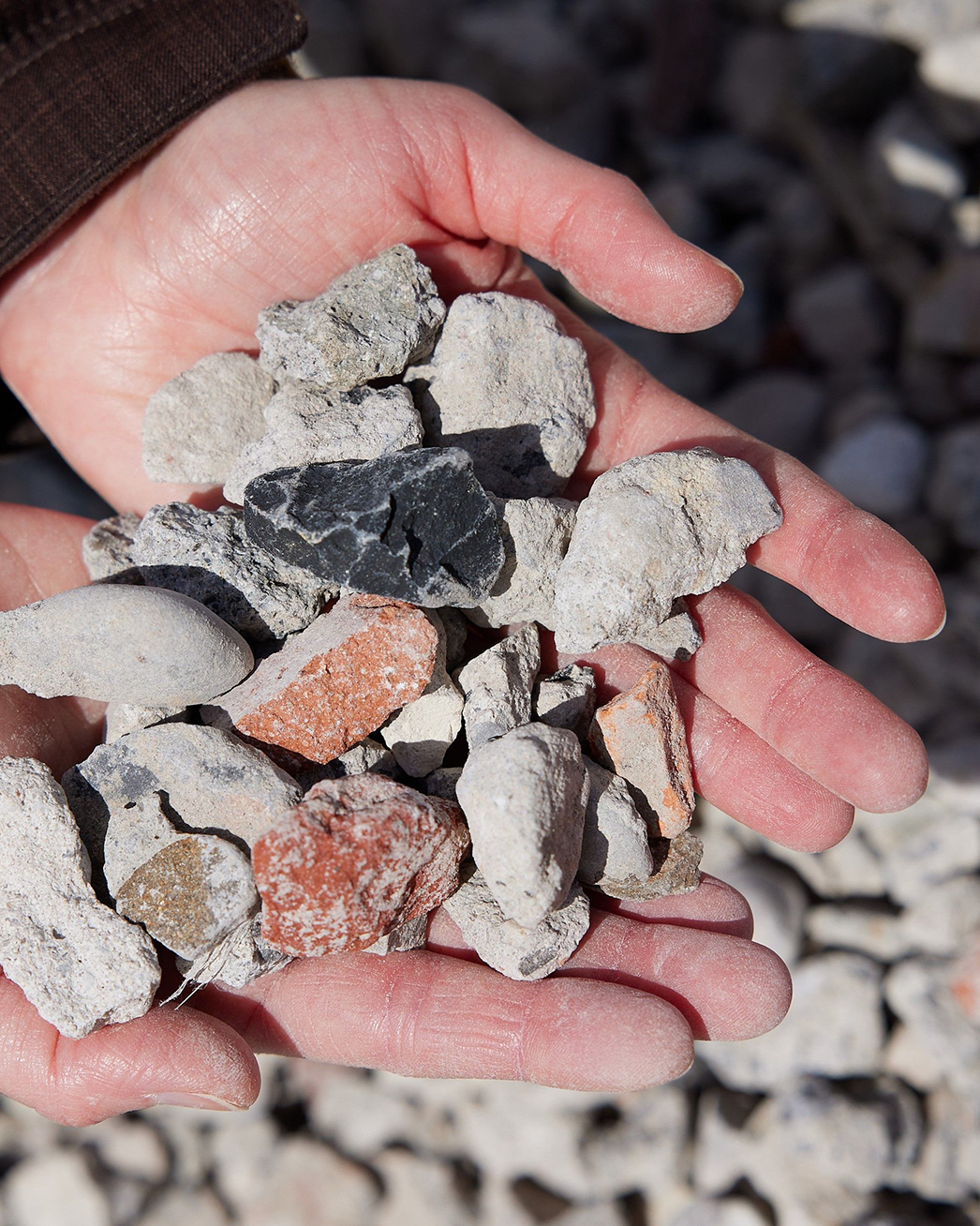
R-concrete with 100% natural stone replacement
Büscher UnternehmensgruppeThe “Büscher Wall” is made of a recycled concrete that substitutes the primary raw materials of gravel and sand for secondary building demolition materials comprised of both coarse and fine components such as masonry, concrete and ceramics. The innovative treatment method reduces the need for natural resources, fosters the circular economy and reduces waste and CO2 emissions. The components are specifically designed for high load-bearing capacity and durability and are suitable for use in diverse construction projects.
More about this project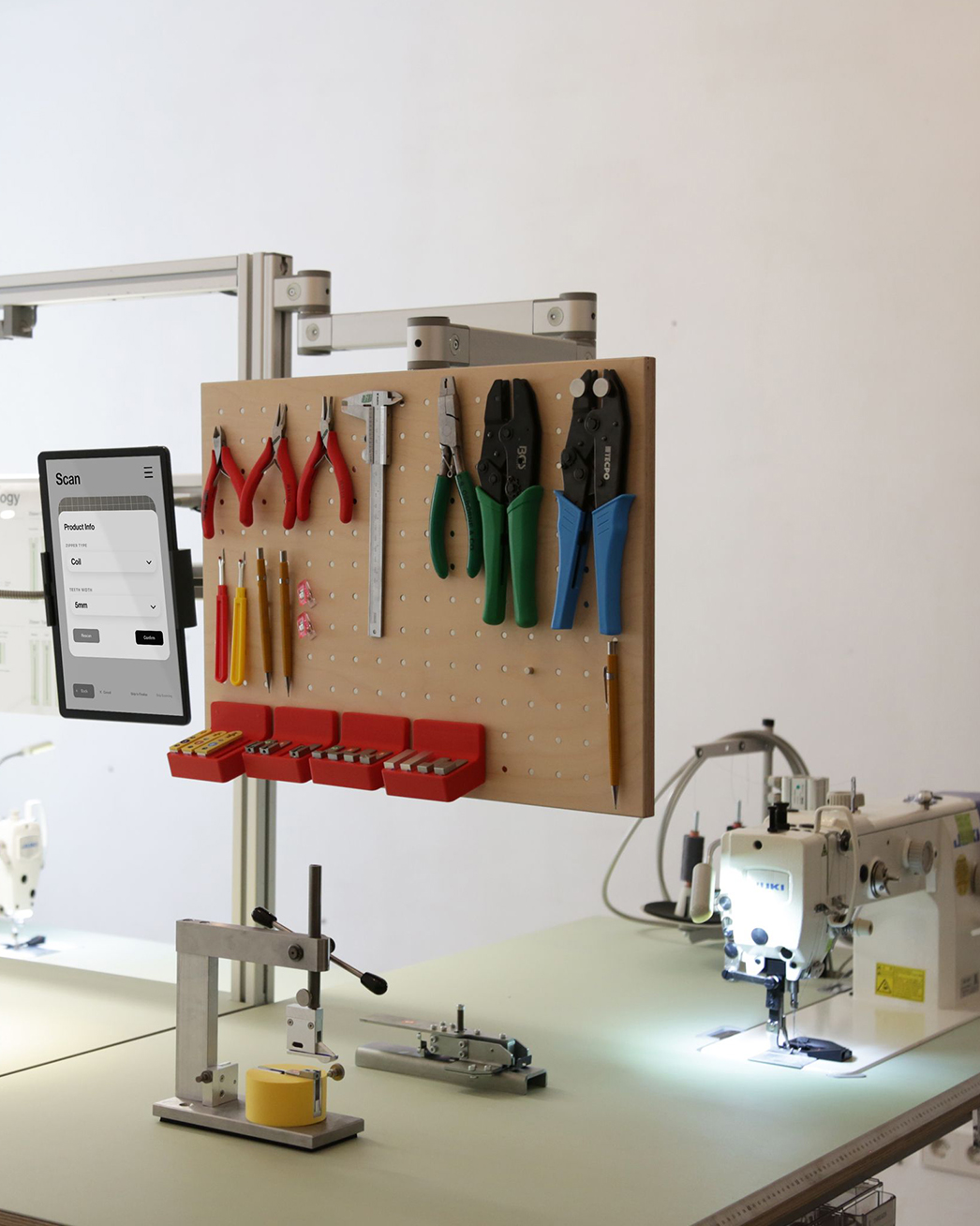
Rezip Zipper Repair Station
CISUTACIf a garment's zipper is broken, repairing it is often considered too complex or expensive, leading to high instances of waste. In the form of the “Rezip Zipper Repair Station”, processes and tools have been developed that enable even beginners to repair zippers quickly and easily. The modular workstation combines smart automation, hand-held tools as well as an interactive step-by-step guide and was built with support from partner STAM as part of the EU-co-funded CISUTAC project.
More about this project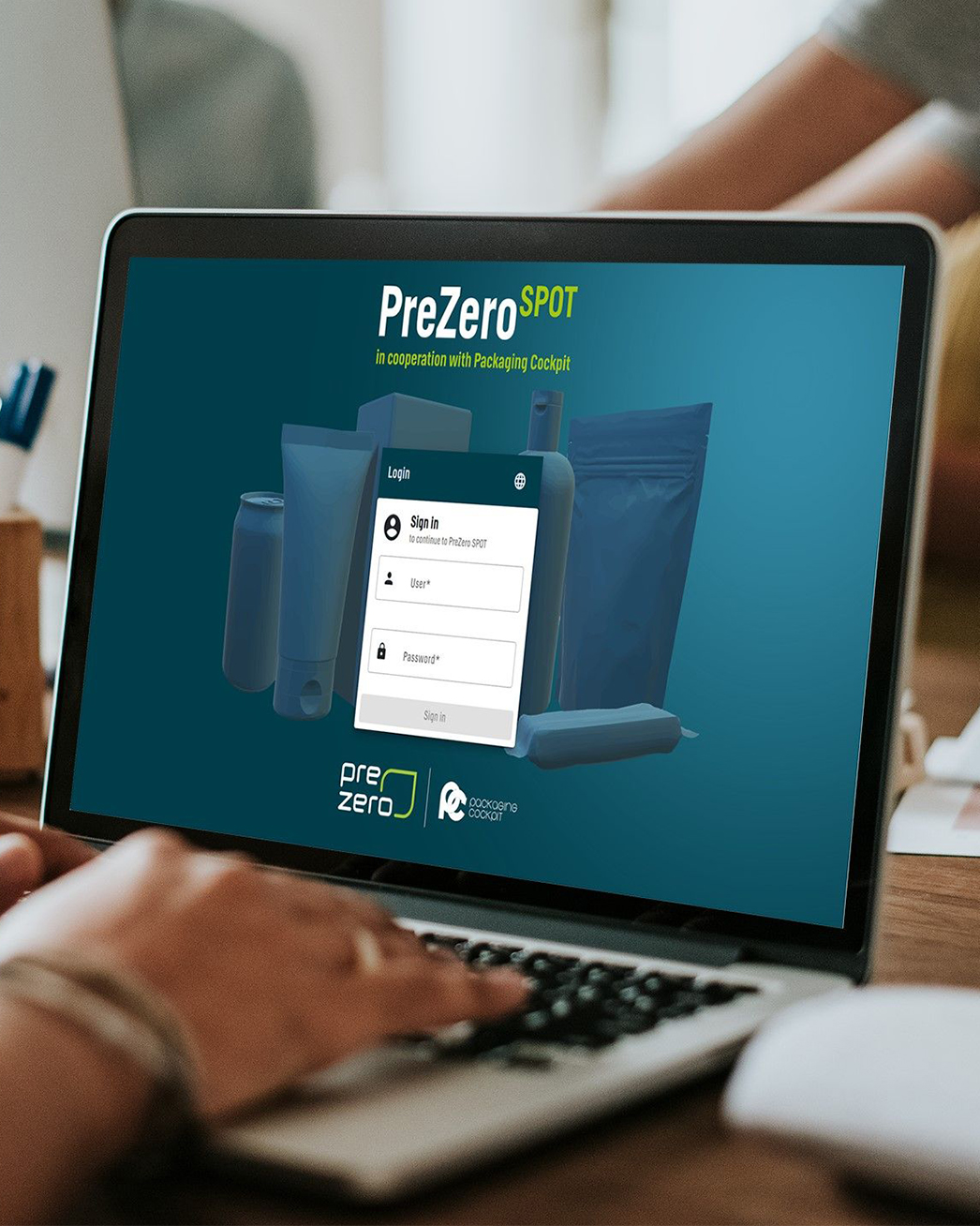
SPOT
PreZero Stiftung & Co. KGThe sustainable packaging optimisation tool “SPOT” is a springboard for manufacturers and distributors of packaging to identify the most environmentally friendly course of action and to make their portfolios more circular. This web-based solution provides information on recyclability and life cycle assessments alongside details on relevant costs such as plastic taxes and license payments. All of this is on a country-specific basis, enabling businesses to make comparisons at a European level.
More about this project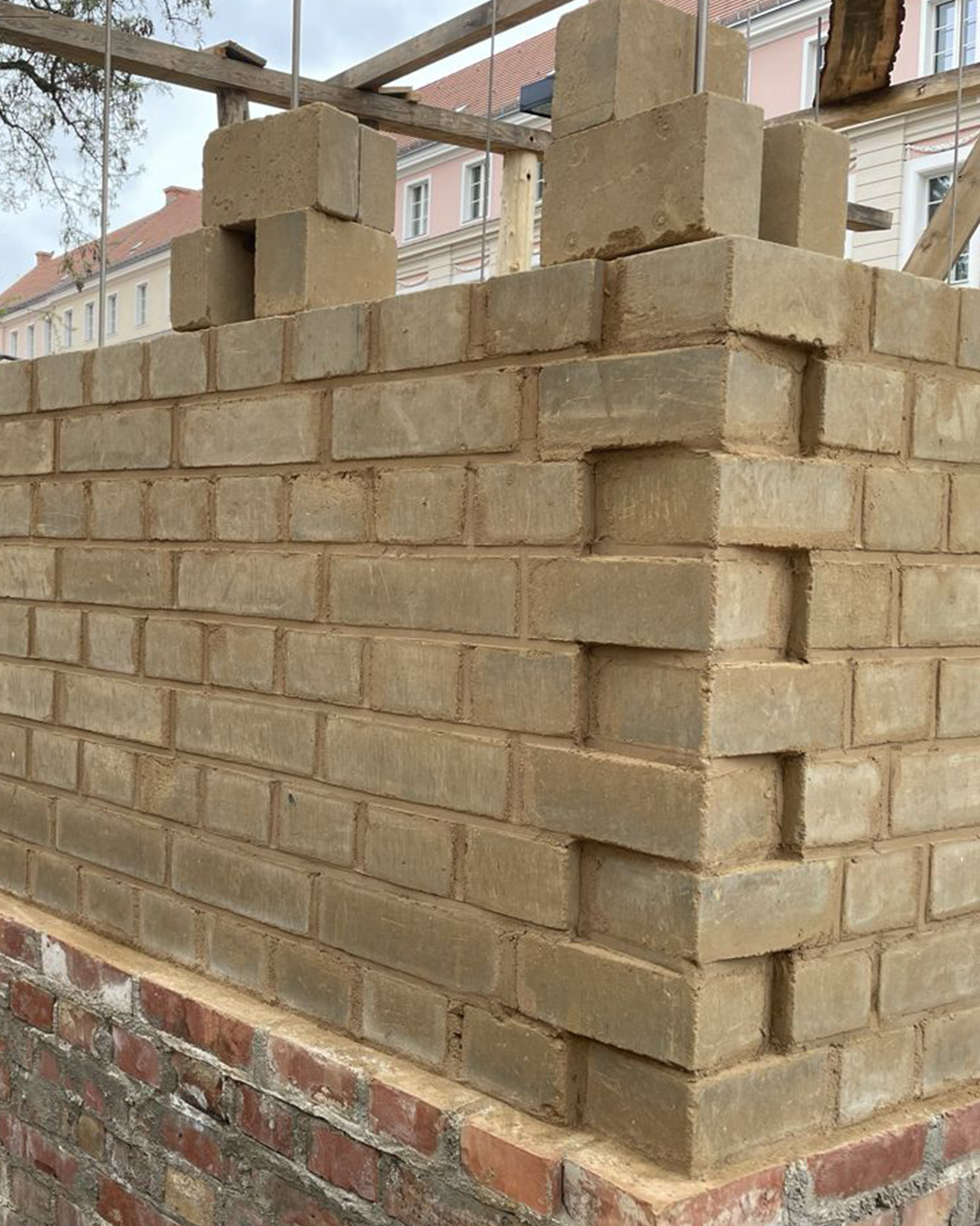
Stadtgold: Pressed earth blocks
Micha Kretschmann & Christian Gäth | Technische Universität BerlinThe raw material for these adobe bricks is excavated materials from urban construction sites. The use of this local “scrap” shortens supply chains, conserves fresh resources and maintains landfill capacity. In practice, the adobe bricks can replace a large part of conventional load-bearing masonry construction. The elimination of hydraulic binding agents makes them low-energy and fully reusable. As a result, the clay bricks can circulate endlessly as a construction material, helping to pave the way for circular building practices.
More about this project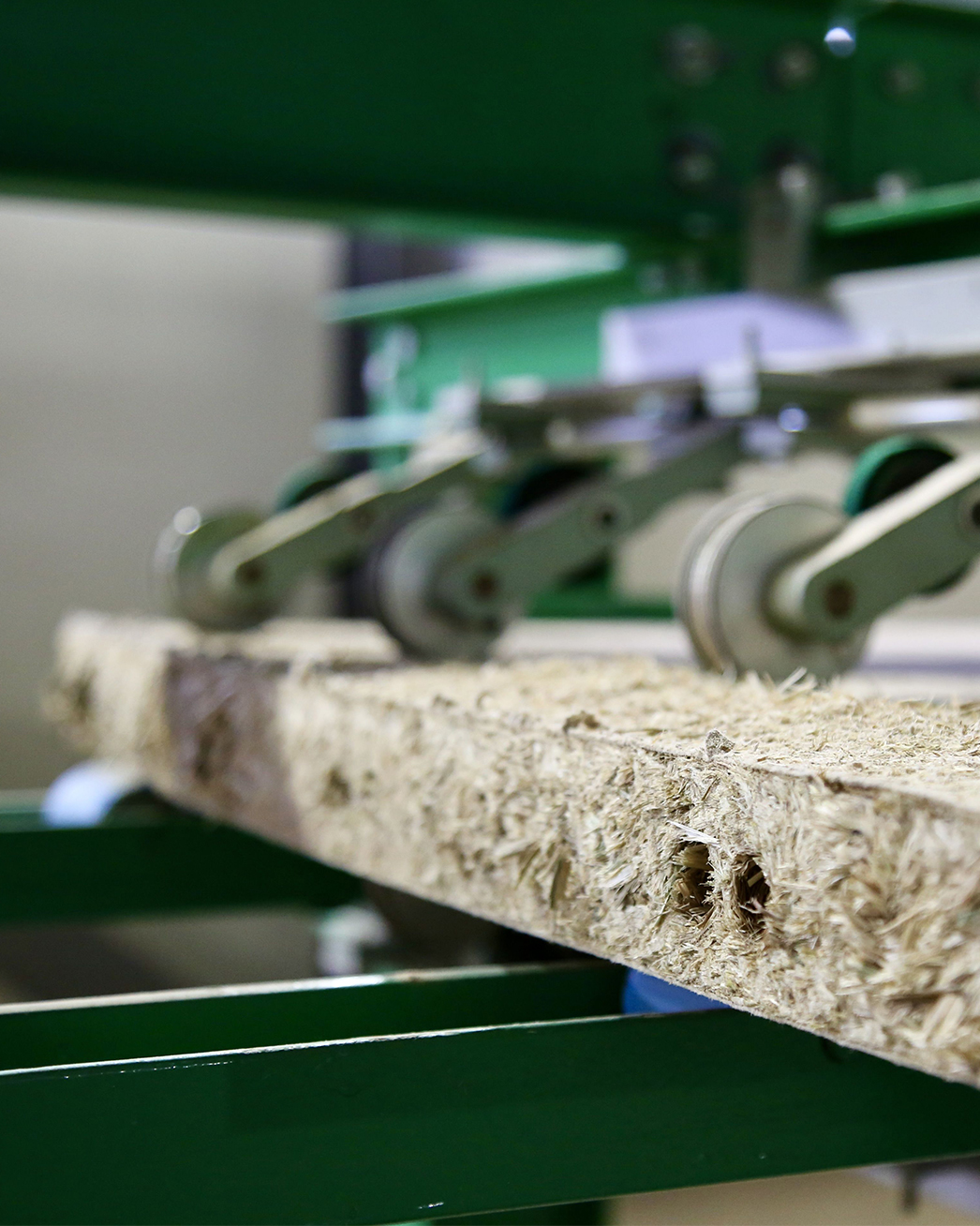
The turnaround for walls
STRAMEN.TEC GmbH“STRAMEN.TEC-partition-walls” are comprised of over 90% regionally sourced straw. The production process uses a by-product from grain cultivation, which is pressed into solid panels with no use of adhesives. Assembly does not require a substructure and can be completed with only a screwdriver, which also enables non-destructive dismantling. In turn, this allows the partition walls to be reused or returned to the company for recycling. The high density of the straw makes the walls extremely robust and helps to contribute a pleasant indoor climate.
More about this project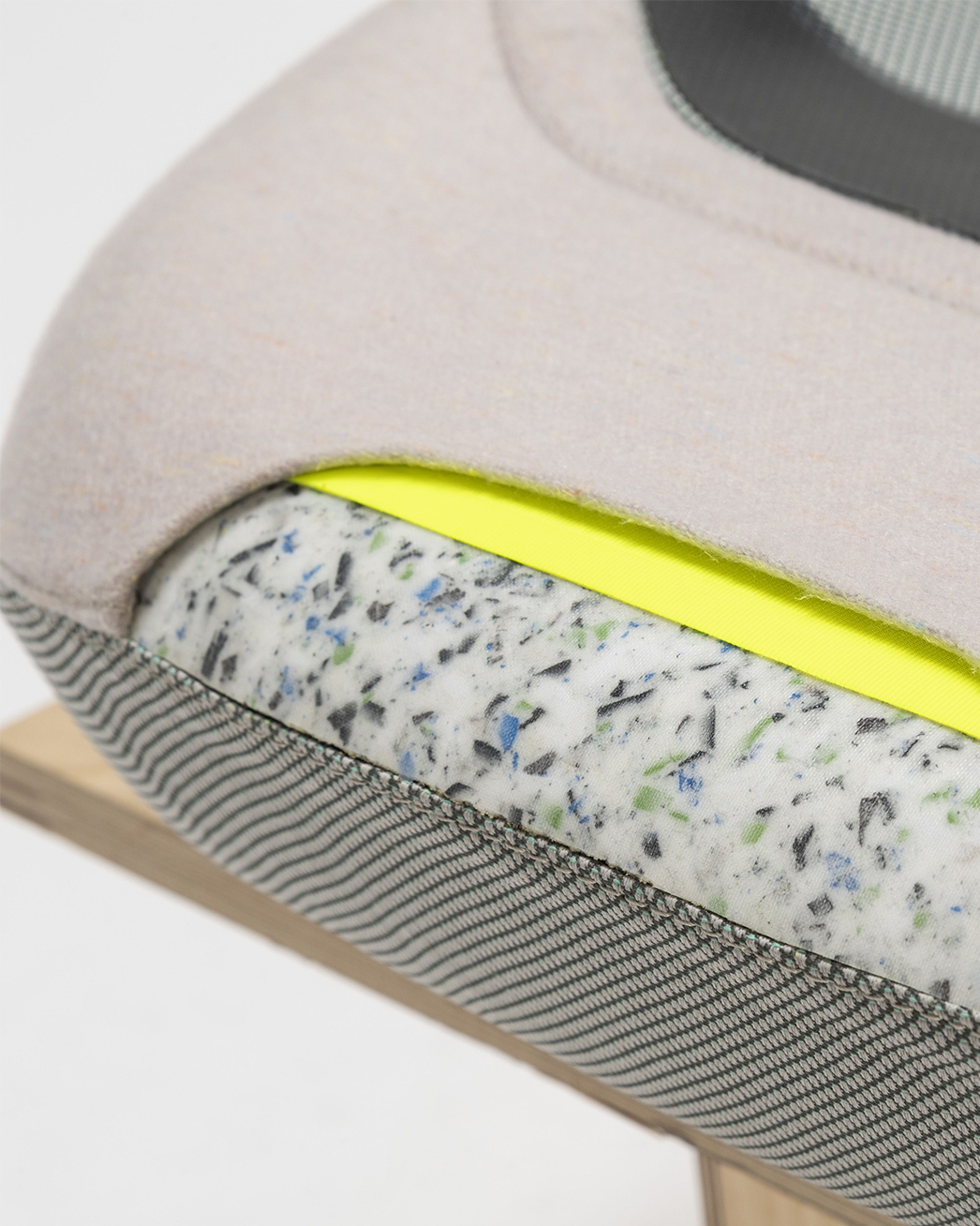
Visionary materials
BMW GroupHow is it possible to manufacture high-quality seating surfaces in a manner that is resource-saving and recyclable? The BMW Group presents applications of innovative materials and production processes that help reduce CO2 emissions and increase the use of secondary materials. A further aim is to establish ideas for a new and high-quality interior aesthetic for motor vehicles and to incorporate partners that have not previously worked with the automotive industry.
More about this project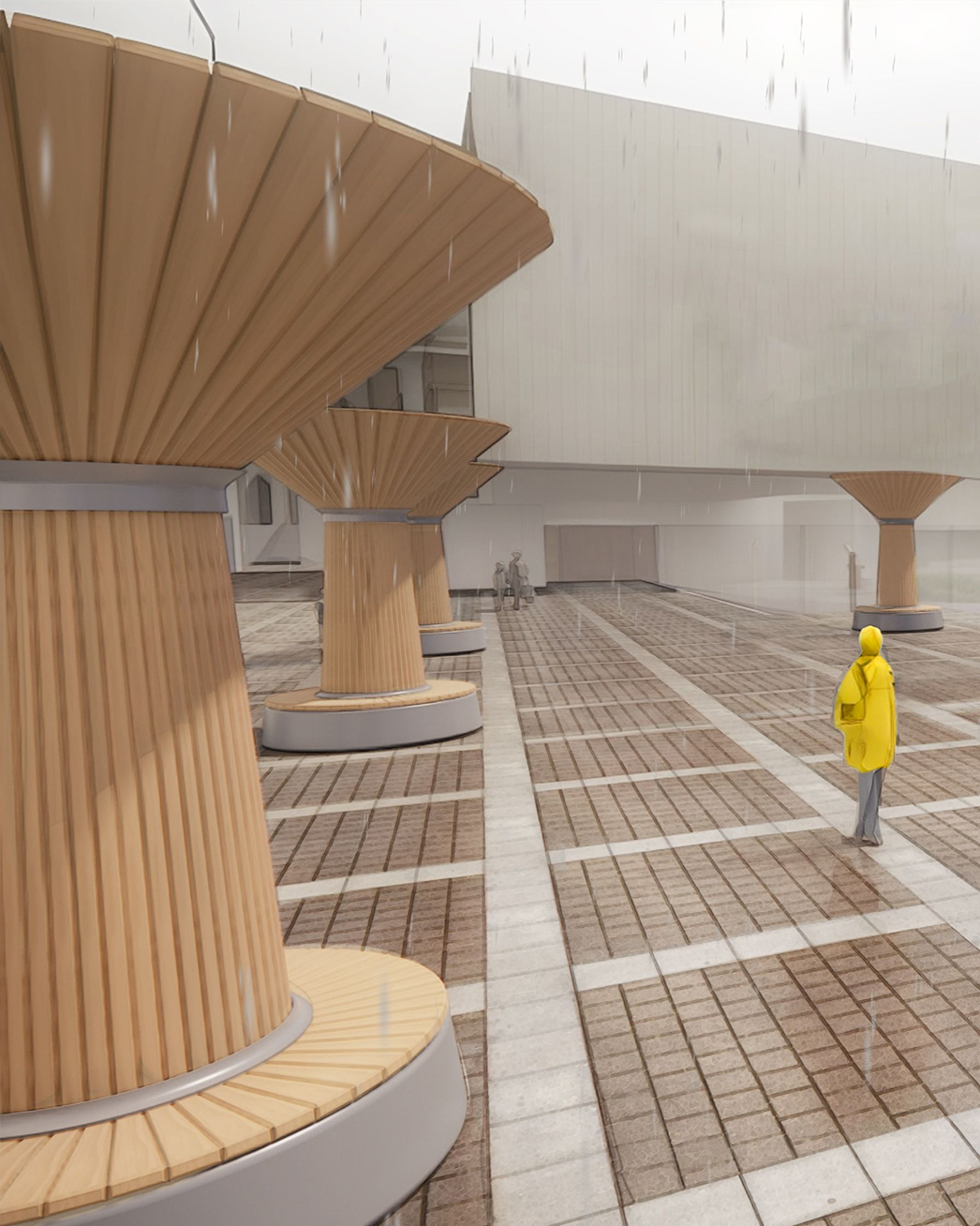
Wasserwald
Lea Bernhard | Hochschule für Gestaltung OffenbachExtreme weather events such as heavy rainfall and increasingly intense and long periods of drought are becoming more common all the time. In cities, such extreme events are exacerbated by extensive ground sealing. The design of “Wasserwald” aims to counteract this by collecting and storing rainwater for watering plants. Each tree in the “Wasserwald” can hold up to 2,400 litres of water, which can be used to the benefit of the surrounding nature and vegetation. Moreover, the forest offers a welcoming atmosphere in which to idle and relax.
More about this project